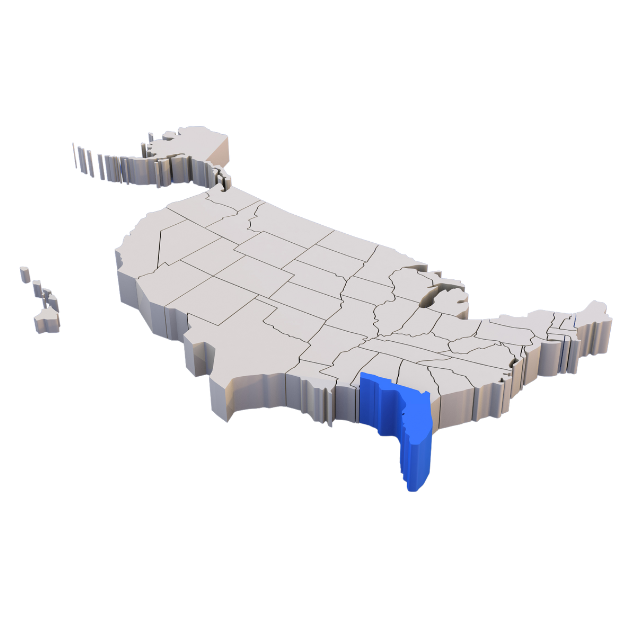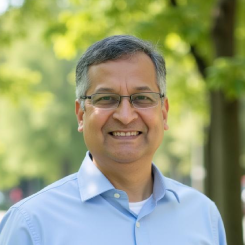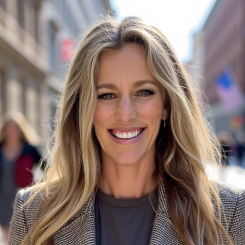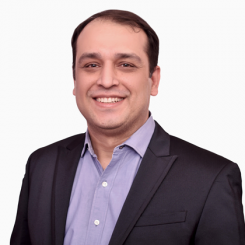Florida Cannabis Laws
Florida’s medical marijuana laws have undergone significant changes since the Compassionate Use Act of 2014. With the passage of Amendment 2 in 2016, the program expanded to include full-strength medical marijuana for a broader range of debilitating conditions.

Florida Medical Marijuana Laws at a Glance
Overview
Regulatory Body: The Florida medical marijuana program is regulated by the Florida Department of Health Office of Medical Marijuana Use (OMMU). The OMMU oversees and regulates medical marijuana treatment center licensees (MMTCs) and mandates the use of seed-to-sale tracking software for all MMTCs.
Legal Status: Medical marijuana is legal in Florida for qualified patients with specific medical conditions. Adult-use (recreational) marijuana remains illegal in the state.
Qualifying Medical Conditions: To qualify for medical marijuana, a patient must be diagnosed with one of the following conditions:
- Cancer
- Epilepsy
- Glaucoma
- HIV/AIDS
- Post-traumatic stress disorder (PTSD)
- Amyotrophic lateral sclerosis (ALS)
- Crohn’s disease
- Parkinson’s disease
- Multiple sclerosis (MS)
- Other debilitating medical conditions of the same kind or class as or comparable to those listed
- Terminal conditions diagnosed by a physician other than the one issuing the certification
- Chronic nonmalignant pain
Patient Certification: Patients must meet with a qualified physician who will issue a certification if the patient has a qualifying condition. The certification allows patients to apply for a medical marijuana patient card through the OMMU, which is required to purchase medical marijuana from licensed dispensaries.
MMTC Fines, Suspension, and Revocation: The OMMU can suspend, revoke, or refuse to renew an MMTC license for various violations. Factors considered include the frequency of violations, potential for rehabilitation, prior violations, impact on the OMMU, potential harm to patients or the public, willfulness of the violation, severity and length of noncompliance, and any corrective actions taken. The OMMU may impose fines up to $10,000 per violation, and ongoing violations can result in daily fines. MMTCs must maintain compliance and safeguard marijuana during suspension periods and display notices of suspension if required.
Application Requirements for MMTCs: Applicants must demonstrate:
- Business registration in Florida for at least five consecutive years.
- A valid certificate of registration.
- Technical ability to cultivate low-THC cannabis.
- Necessary infrastructure and resources.
- Financial stability and a performance bond.
- Background checks for all owners, officers, and managers.
- Employment of a medical director.
- A diversity plan promoting minority and veteran involvement.
Inspection and Authorization: Within 12 months of licensure, MMTCs must pass a Food Safety Good Manufacturing Practices inspection. The OMMU conducts regular inspections to ensure compliance and addresses complaints about contaminated marijuana products.
Packaging and Labeling: MMTCs must use child-resistant, resealable receptacles for medical marijuana products.
Packaging must include patient inserts with detailed information and meet specific labeling requirements, such as batch numbers, expiration dates, and warnings. Edibles must be individually wrapped and labeled with ingredient lists and allergen information.
Qualifying Medical Conditions
Law Reference: F.S. 381.986(2)
Qualifying Medical Conditions:
To be eligible to receive medical marijuana or a marijuana delivery device in Florida, a patient must be diagnosed with at least one of the following conditions:
- Cancer
- Epilepsy
- Glaucoma
- Positive status for human immunodeficiency virus (HIV)
- Acquired immune deficiency syndrome (AIDS)
- Post-traumatic stress disorder (PTSD)
- Amyotrophic lateral sclerosis (ALS)
- Crohn’s disease
- Parkinson’s disease
- Multiple sclerosis (MS)
- Medical conditions of the same
Initial Application Requirements
Law Reference: F.S. 381.986(8)(b)
Overview:
To obtain a license as a Medical Marijuana Treatment Center (MMTC) in Florida, applicants must meet several criteria demonstrating their capability to operate within the state’s regulatory framework. The requirements ensure that MMTCs can provide safe and effective medical marijuana to qualified patients.
Key Points:
- Business Registration:
- The applicant must have been registered to do business in Florida for the five consecutive years before submitting the application.
- Certificate of Registration:
- The applicant must possess a valid certificate of registration issued by the Department of Agriculture and Consumer Services.
- Technical and Technological Ability:
- The applicant must demonstrate the ability to cultivate and produce marijuana, including low-THC cannabis.
- Security Measures:
- The applicant must have the necessary premises, resources, and personnel to secure the operations of an MMTC.
- Accountability:
- The applicant must show the ability to maintain accountability of all raw materials, finished products, and byproducts to prevent diversion or unlawful access.
- Infrastructure:
- The applicant must have an infrastructure reasonably located to dispense marijuana to registered qualified patients statewide or regionally.
- Financial Stability:
- The applicant must demonstrate the financial ability to maintain operations for the two-year approval cycle.
- Certified financial statements must be provided.
- A $5 million performance bond is required, which can be reduced to $2 million if the MMTC serves at least 1,000 qualified patients.
- Alternatives to the performance bond include an irrevocable letter of credit or cash deposit payable to the department.
- Background Screening:
- All owners, officers, board members, and managers must pass a background screening pursuant to subsection (9).
- Medical Director:
- The applicant must employ a medical director to supervise the activities of the MMTC.
- Diversity Plan:
- The applicant must have a diversity plan promoting the involvement of minority persons, minority business enterprises, and veteran business enterprises in ownership, management, and employment.
- For licensure renewal, the applicant must demonstrate the effectiveness of the diversity plan through representation in the workforce, recruitment efforts, and contracts with minority and veteran business enterprises.
These comprehensive requirements ensure that MMTCs in Florida are well-equipped to provide medical marijuana in a safe, secure, and regulated manner, promoting diversity and financial stability within the industry.
Inspection and Authorization Procedures
Law Reference: F.S. 381.986(8)(e)(9); F.S. 381.986(10)
Overview:
Florida’s regulations mandate rigorous inspection and authorization procedures to ensure that Medical Marijuana Treatment Centers (MMTCs) maintain high standards of safety, quality, and compliance with state laws.
Key Points:
- Initial Inspection:
- Within 12 months of receiving a license, an MMTC must demonstrate that all its processing facilities have passed a Food Safety Good Manufacturing Practices (GMP) inspection. This inspection must be conducted by a nationally accredited certifying body, such as those adhering to the Global Food Safety Initiative (GFSI) or equivalent standards.
- If a facility fails to pass this inspection, it must immediately cease processing activities until it can demonstrate compliance with these requirements to the department.
- Regular Inspections:
- The Florida Department of Health is authorized to conduct both announced and unannounced inspections of MMTCs to verify compliance with relevant regulations and laws.
- Inspections will cover various aspects including records, personnel, equipment, processes, security measures, sanitation practices, and quality assurance practices.
- Complaint-Based Inspections:
- The department will inspect an MMTC if it receives a complaint or notice indicating that the MMTC has dispensed marijuana containing mold, bacteria, or other contaminants that could cause adverse health effects or environmental harm.
- Biennial Inspections:
- At a minimum, the department will conduct biennial (every two years) inspections of each MMTC to evaluate their overall compliance and operational standards.
- Response to Non-Compliance:
- If an MMTC is found to be non-compliant, it must take immediate corrective action to address the issues identified during the inspection. Continued non-compliance may result in penalties, including fines, suspension, or revocation of the license.
These procedures ensure that MMTCs operate safely and effectively, protecting the health and well-being of patients and the public. Regular and thorough inspections help maintain high standards within the medical marijuana industry in Florida.
Packaging and Labeling
Law Reference: F.S. 381.986(8)(e)11.f. and 12; Florida Administrative Code Chapter 64-4 rules, and the MMTC Emergency Rules for packaging and labeling in 64ER-20-32
Overview:
Packaging and labeling requirements for medical marijuana products in Florida are designed to ensure patient safety, prevent unauthorized access, and provide clear, accurate information.
Key Points:
Packaging Requirements:
- Receptacle Standards:
- All usable products must be placed inside a receptacle at the MMTC’s department-approved processing facility.
- Receptacles must be placed inside a package with a patient package insert before the usable product is dispensed by an MMTC.
- The receptacle must be child-resistant. For multiple-use products and multi-serving edibles, the receptacle must be resealable to maintain child resistance after each use.
- Receptacle Approval:
- Before dispensing usable products, MMTCs must obtain department approval for the receptacle, label, and package.
- The receptacle must not depict the product or any graphics/images, except for one image of the MMTC’s department-approved logo and the universal symbol.
- Receptacles must be a single solid color (except for edibles which must be white) and may not be neon.
- Label Placement:
- All required information must be prominently and conspicuously placed on the receptacle.
- Labels may include instructions, health information, or warnings but cannot include unsubstantiated claims that the product cures any medical condition.
Labeling Requirements:
- Mandatory Information:
- Each receptacle must have a firmly affixed and readable label(s) that includes:
- The statement that the marijuana meets the requirements of 381.986(8)(e)10d.
- The name of the MMTC from which the marijuana originates.
- The batch number and harvest number, and the date dispensed.
- The name of the physician who issued the certification.
- The name of the patient.
- The product name, dosage form, THC, and CBD concentration.
- The recommended dose.
- A warning that it is illegal to transfer medical marijuana to another person.
- The universal symbol, at least 10% of the package’s surface area.
- Each receptacle must have a firmly affixed and readable label(s) that includes:
- Prohibited Elements:
- Labels must not include trademarks resembling food or beverage brands, misleading artwork or designs, or imagery appealing to children.
Additional Specifications:
- Edibles:
- Each edible must be individually sealed in plain, opaque, white wrapping marked only with the universal symbol.
- Multi-serving edibles must have each serving individually wrapped and placed inside the receptacle.
- Edible labels must list all ingredients in order of prominence, identify allergens, provide storage instructions, and include expiration dates.
- Usable Products for Smoking:
- Receptacles must be plain, opaque, and white, with labels including warnings about keeping the product away from children and the carcinogenic risks of marijuana smoke.
- Derivative Products (Non-Edibles):
- Receptacles must be one single solid color with one additional accent color (excluding neon).
- Labels must include the universal symbol and identify all ingredients in order of prominence.
These detailed packaging and labeling regulations ensure that medical marijuana products are clearly identified, safely contained, and provide necessary information to patients while preventing misuse and ensuring compliance with Florida law.
Fines, Suspension, and Revocation
Law Reference: F.A.C. 64-4.210
Overview:
The Florida Department of Health’s Office of Medical Marijuana Use (OMMU) enforces strict disciplinary guidelines for Medical Marijuana Treatment Centers (MMTCs) to ensure compliance with state regulations. Violations can result in fines, license suspension, or revocation.
Key Points:
- Purpose of Discipline:
- To penalize MMTCs for violations.
- To deter future violations.
- To provide opportunities for correction when appropriate.
- To deter other licensees from committing violations.
- Grounds for Suspension or Revocation:
- The OMMU may suspend or revoke an MMTC license or refuse renewal if violations are found under Section 381.986(10)(f), F.S.
- Factors considered in determining the seriousness of a violation include:
- Frequency or number of occurrences.
- Potential for rehabilitation.
- Any prior violations.
- Impact on the department.
- Potential and/or actual harm to patients or the public.
- Willfulness and deliberateness of the violation.
- Severity and length of noncompliance.
- Good faith efforts to prevent violations.
- Corrective actions taken by the MMTC.
- Fines:
- The OMMU can impose fines of up to $10,000 per violation.
- For ongoing or continuous violations, each day counts as a distinct violation.
- The amount of the fine will be determined by the factors listed above.
- Safeguarding Marijuana During Suspension:
- MMTCs must account for and safeguard all marijuana during a suspension.
- The premises must remain compliant with all requirements.
- Operations can only resume upon receiving written notice from the OMMU after corrective actions are taken.
- Notice Requirements:
- The OMMU may require MMTCs to display a notice of suspension on all dispensing facilities and on the homepage of their website.
- The notice must measure at least 8.5 by 11 inches, with lettering at least 14-point font, and remain in place until the suspension ends.
- License Renewal During Suspension:
- Suspended MMTCs must still comply with all license renewal requirements.
- A license suspension does not toll the renewal deadline.
- Revocation and Reapplication:
- An MMTC whose license has been revoked cannot reapply for licensure for at least five years.
- If the violation contributes to the death of a patient, the MMTC is permanently barred from reapplying.
- Non-Refundable Fees:
- Fees associated with application, licensure, or renewal are non-refundable if a license is suspended or revoked.
- Schedule of Fines:
- The OMMU uses a guideline schedule for disciplinary fines. The maximum fines reflect the maximum that can be imposed per violation.
These disciplinary measures ensure that MMTCs operate within the legal framework and maintain the highest standards of safety and compliance, thereby protecting patients and the public from potential harm.
Florida Cannabis Laws FAQs
Is adult use marijuana legal in Florida?
No, adult use (recreational) marijuana is not currently legal in Florida. The state’s cannabis program only permits the medical use of marijuana for qualified patients with specific medical conditions.
How is marijuana taxed in Florida?
Medical marijuana in Florida is not subject to the standard state sales tax. However, MMTCs (Medical Marijuana Treatment Centers) are required to pay a state sales tax on their gross receipts. The specifics of this taxation can vary, so it is recommended to consult with the Florida Department of Revenue for the latest information.
How much weed can I buy in Florida?
Qualified medical marijuana patients in Florida can purchase up to a 70-day supply of marijuana as determined by their certifying physician. The exact amount can vary based on the patient’s medical needs and the physician’s recommendations.
Disclaimer: The material contained on this website and any attached or referenced pages has been compiled by UZIO for informational purposes only. It is not intended to be and is not considered to be legal advice. This post is current as of [1/July/2024]. Medical Marijuana regulations are rapidly changing, and legal advice of any nature should be sought from legal counsel.
Need Help with State Cannabis Compliance?
Our experts can help you navigate complex cannabis regulations and ensure your business stays compliant.
Biography
John Matos went from a full-time musician, touring the world, to an effective people leader in both the restaurant and cannabis spaces. He has over 15 years of experience in the Customer Service industry, ranging from retail operations to software. John has managed teams and leaders while growing multi-million dollar businesses in the retail industry.
He then moved into the Customer Success (CS) segment, owning an enterprise book of business encompassing hundreds of millions of dollars in revenue and was then promoted to Manager of Customer Success.
John’s key achievements include:
- Growing restaurant sales year over year in excess of 10%
- Opening a co-located medical and recreational cannabis facility
- Growing year-over-year sales into the tens of millions of dollars
- Growing an enterprise client book of business and seeing no churn
- Managing a team of Customer Success Managers covering over 300 clients
John has experience working as a General Manager, Enterprise Customer Success Manager, and previously held a Manager of Customer Success role at the cannabis tech industry leader, Dutchie.
Biography
As a CTO, Mak Thigale leads the Products and Engineering at UZIO. He drives UZIO’s charter of being an AI First company. He has a hands-on approach to AI strategy and implementation. He guides the UZIO team to identify impactful AI use cases, experiment with technologies like machine learning, LLMs and agentic frameworks, and to put AI solutions in production.
Mak is an accomplished technology leader with over 35 years of global IT experience, bringing deep expertise in AI, technology transformation, and large-scale enterprise solutions. He has successfully led multi-million and billion-dollar outsourcing engagements across industries, including Healthcare, Manufacturing, Technology, BFSI, and Utilities, for Fortune 500 companies.
Mak’s professional journey includes leadership roles at Wipro, where he spearheaded initiatives in hyper-automation, delivery transition & transformation, and M&A integration. He has also advised companies on leveraging Generative AI (Gen AI) and large language models (LLMs) to deliver greater value to stakeholders. Mak is a global citizen having lived and worked in the US, Canada, Germany and India and has managed large, global teams.
Mak’s other passions include cooking, reading, and traveling. He is an avid follower of cricket.
Mak holds a Bachelor of Engineering in Computer Science from Pune Institute of Computer Technology, Pune, India.
Biography
Lilly Raney, the newly appointed Head of Sales for UZIO, brings over 15 years of diversified industry experience to her new leadership role. Beginning her professional journey in the athletic footwear and apparel sector, she spent a decade supporting specialty brick-and-mortar establishments. In 2018, Lilly made a strategic transition into the cannabis field.
She has since devoted 5 years to specializing in SaaS POS systems, first within the cannabis industry, and subsequently expanding into other SaaS verticals including HR/Payroll with UZIO. As a former Regional Sales Director at Dutchie, Lilly’s core expertise centers on sales leadership and operational efficiency.
With a proven track record and a steadfast dedication to pushing boundaries, Lilly Raney emerges as a beacon of excellence within the realm of sales leadership. Her unwavering dedication to fostering a strong and sustainable future for the cannabis industry is a testament to her commitment to innovation and growth.
Biography
Peter Harrison has over 35 years of experience building and leading global technology companies. Started and grew five companies, two that went public and three that each went on to be worth over $1 billion.
Directly involved in raising $600 million of private and public capital and led the acquisition and integration of a dozen firms, creating businesses with a combined market capitalization of over $18 billion.
Biography
Human Resource Professional with 10+ Years of experience in Strategic HR, Organization Development & Talent Management in global organizations. Proactive approach in institutionalizing HR practices.
Instrumental in driving managerial effectiveness, high performance culture, and talent lifecycle management.
Ana obtained her Bachelor of Business Administration (B.B.A.) degree from Kurkshetra University. And her Post Graduate Diploma in Management Studies, in Human Resources Development from Institute of Management Studies, Noida.
Biography
Dheeraj leads the product management team behind the UZIO HR Management software. He has around 15 years of experience, especially in HR and benefits administration. His experience lies in taking the product from conceptualization to the market stage to help the company for the next level of growth.
Before joining UZIO, he worked at hCentive Inc and managed various product modules. He has also worked with Hewitt, Conduent Technologies in India, and managed a large group of client benefits into the system.
Dheeraj obtained his bachelor’s degree in Business administration from a regional college and a master’s degree in Computer Applications from the Institute of Management and Technology, Faridabad (India).
Biography
Sanjay Singh is the Founder/ CEO of UZIO. The 2020 American Business Awards® honored him as “Entrepreneur Of The Year”.
Being a globally recognized serial entrepreneur, Sanjay co-founded, launched, built, and presided over two other successful ventures – GlobalLogic and hCentive, before founding UZIO. GlobalLogic, founded in 2000 and acquired by Hitachi Ltd. in 2021, is now a 32,000+ employees strong company with employees in more than 23 countries. It’s a Digital Product Engineering Services company that caters to the needs of digital media, electronics, healthcare, infrastructure, finance, retail, and telecom industries. Sanjay served as President there for almost 10 years.
Acquired by a private equity firm in 2013, this full-lifecycle product development services leader generated attractive returns for its shareholders from top-notch VC firms like New Atlantic Ventures, Sequoia, and NEA. Founded in 2009, hCentive, a healthcare technology and services company that specializes in cloud-based products for health insurers and state health agencies. In 2014, the company launched WebInsure Benefits, a multi-carrier, multi-product platform that supports government agencies, insurance carriers, and brokers for benefits choices. hCentive has been in Inc. 5000 fastest growing companies list for three consecutive years.
Sanjay holds an MS in Engineering and Management from the Indian Institute of Technology (IIT) Kharagpur, India, and a BE from the Government College of Engineering in Raipur, India.
Sanjay’s other passions include public policy and American history. He loves to listen to C-Span or read biographies of American presidents in his leisure time.







